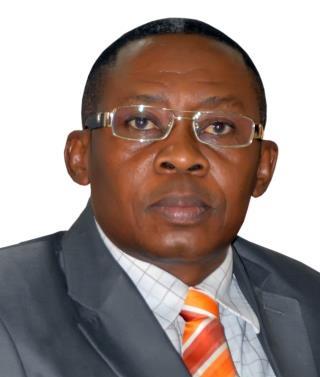Provost of College of Education (Technical) Umunze, Anambra State, Professor Josephat Ogbuagu, shares his thoughts on the need for professionalism in education with Special Correspondent, OKEY MADUFORO.
He, before now, literally was a lone voice in the wilderness. But the insistence of the Provost, College of Education (Technical) Umuneze in Anambra State, Professor Josephat Ogbuagu, on professionalising education seems to be achieving results, even if belatedly.
The campaign by the professor, somehow, received an official seal during the last convocation ceremony of Nnamdi Azikiwe University Awka. The Secretary of the National University Commission (NUC), Professor Julius Okojie, reiterated government’s policy that all lecturers in tertiary institutions must possess a certificate in Education.
Though the directive was in line with the advocacy by Ogbuagu, there is need for it to go beyond mere pronouncement and be backed with action.
“It is not the first time such statements have been made. In the past, we in the educational sector had expressed dismay over the productivity and professional status of some lecturers in the universities, colleges of education and polytechnics. It does not stop at a lecturer imparting those learning experiences on the student, but the process by which it is done,” he told TheNiche.
“A lecturer may process a Ph.D degree, but you discover that at the end of the day not up to 50 per cent of the students in the class can effectively comprehend what he is teaching. This does not speak well of effective teaching and learning and it indeed rubs off negatively on the larger society.”
The federal government’s recent efforts to reverse the trend through the certification exercise gives him satisfaction.
But achieving the goal cannot come easy, our reporter reminded the don. It will, for instance, entail those already in the field meeting the requirement.
He agreed, stressing that against this backdrop, colleges of education and faculties of education are already bracing up for the challenges of ensuring that professionalisation of education is achieved in the shortest possible time.
The policy, he said, is long overdue. His words: “There has been that clamour in most quarters for us to professionalise education. In the past, there had been this attitude of paying lip service to this policy.
“But in this new dispensation, you can agree with me that the federal government is determined to do the needful, and that is good for our educational system.”
The directive is not entirely new, Ogbuagu recalled, remarking that in the past, it was a major requirement for every teacher to attend teachers training college before going into practice.
“We used to have Teacher Training College in the past and the products were exposed to the basic and technical knowledge of transferring knowledge to the pupils.
“We later had Colleges of Education like Alvan Ikoku College of Education, Owerri, where Nigerian Certificate in Education (NCE) was awarded and later the products may well complete a programme as post-NCE at the university level and end up with a Bachelor’s Degree in Education,” he said.
The policy being implemented, according to Ogbuagu, is known as pedagogy, which, he said, is the act of acquiring teaching skills with the ultimate goal of setting objectives to produce good, professional and knowledgeable teachers in the system.
According to the Provost, “You do not just walk into a classroom and introduce a topic or a subject without appreciating the need for entry behaviour on the pupil or student or the process of set induction. These teaching skills, no doubt, make teaching and learning easy and interesting.”
He recalled that teaching practice has always been compulsory among colleges of education and teacher training colleges, adding that with the new policy on education for tertiary institution, teachers would follow suit to achieve the desired results.
“You are thought to do teaching practice at all levels. You are exposed to Philosophy of Education, Psychology and Comparative Education. But this is not a practical thing.
It is not like the sandwich education at this level because these lecturers or beneficiaries are graduates in their respective disciplines. It is only that they need to be effectively armed with those basic teaching skills and ethics in the act of imparting knowledge and learning experience to the upcoming generation,” he stressed.
Ogbuagu noted that the programme is a nine-month exercise of active teaching and learning and three months to tidy up the process.
“We have programmes like Post Graduate Diploma in Education (PGD). We also have another one that is being organised by the Teachers Registration Council (TRC) which is a Professional Diploma in Education (PDE). There is also National Teachers Institute (NTI). Universities and Polytechnics also have programmes that are in tandem with this exercise,” he added.
To ensure success of the exercise, however, the Provost observed that the federal and state governments should endeavour to improve on facilities in the institutions, especially in the universities and colleges of education within their areas of jurisdiction for the expected surge and in meeting the goal of the directive.
“I know that the challenges are much, but that does not mean that government should allow the affected institutions to remain the way they are. No doubt, though, government is doing its best in the present circumstance and we know that this is a gradual process in view of the economic situation in the country. But there is urgent need to improve on the facilities on the ground,” Ogbuagu emphasised.
He called on the federal government to make good its announcement of upgrading College of Education (Technical) Umunze to University of Education.















